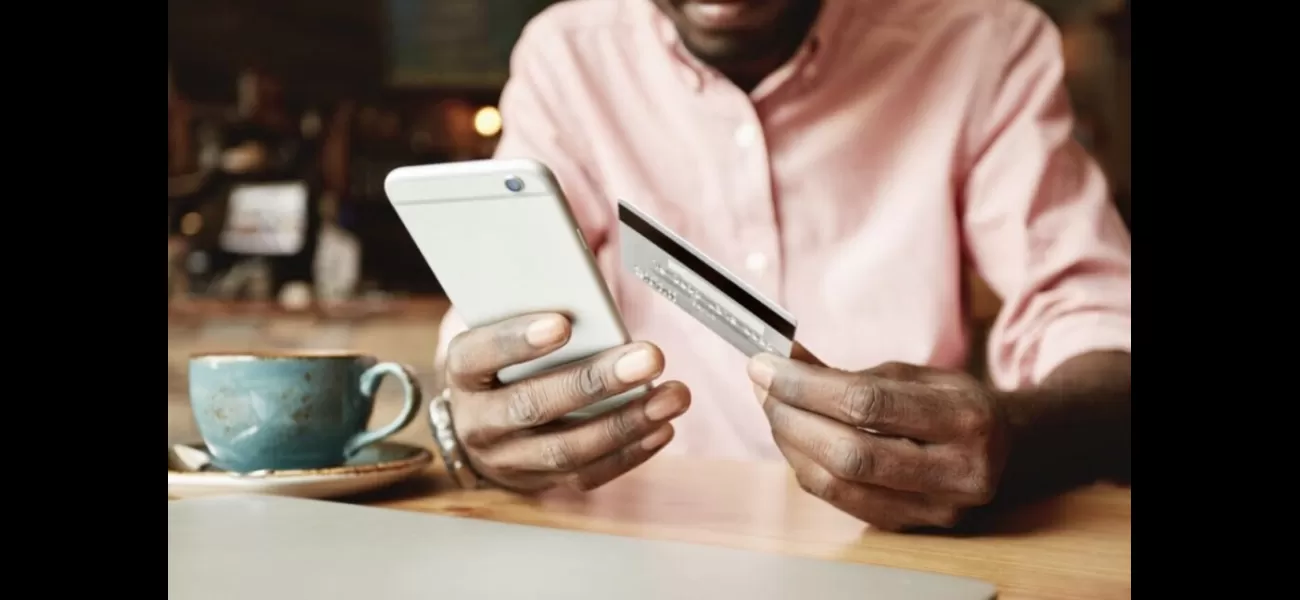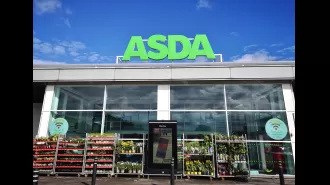The growing popularity of Buy Now, Pay Later loans is causing concern for consumers due to the potential for accumulating "ghost debt."
In 2023, BNPL loans gained popularity with Black American consumers, especially for buying groceries.
May 15th 2024.

"Buy-now-pay-later loans, also known as "ghost debt," have taken the shopping world by storm. These loans offer consumers the convenience of making a purchase and paying it off at their own pace, with either zero interest or a low fixed rate. In fact, according to Adobe Business, the most popular "ghost debt" apps are Klarna, Afterpay, and Affirm.
While some experts, like Ted Rossman, Senior Industry Analyst at Bankrate.com, don't see avoiding interest as a major concern, they do warn about the potential risks associated with these types of loans. Overspending, late payments, and financial trouble are all symptoms that can lead to what is known as "phantom debt" or "ghost debt." Rossman explains that these issues arise because these companies do not report outstanding loans to credit bureaus, making it difficult for lenders to accurately assess a customer's level of debt. He also notes that these loans are often accessible to those with less than perfect credit scores.
The analyst adds, "If you do happen to be a little late with a payment, it probably won't have a significant impact on your credit score. These companies typically don't report to credit bureaus unless the payment is so late that it goes to collections."
However, the hidden risks associated with BNPL loans are becoming more apparent. A study conducted by the Federal Reserve Bank of Kansas City found that nearly 20% of customers using these loans fell behind on their payments. And of those who did manage to pay their bill within a month, 33% had to borrow funds from another lender, leading to even more debt. In fact, according to Florida Daily, credit ratings agencies are currently unaware of an estimated additional $700 billion in debt.
Interestingly, in 2023, BNPL loans saw a surge in popularity among Black American shoppers, particularly when it came to purchasing groceries. As the cost of groceries increased by 8.4%, almost half of Americans turned to installment loan apps, with 1 in 5 relying on these loans to buy groceries. However, the risks are even higher for Black and Hispanic users. These groups have close to 70% more credit card debt and about $12,000 less in savings compared to non-BNPL users.
Despite these alarming statistics, the BNPL industry continues to promote itself as a more flexible and consumer-friendly alternative to traditional credit cards. A spokesperson for Klarna, one of the leading BNPL apps, defends the industry, saying, "Regardless of what the purchase is, BNPL is a healthier and more sustainable option compared to high-cost credit cards that encourage minimum payments and keep people in debt longer with extortionate interest rates."
However, experts argue that there are better options available for those who are still considering BNPL loans. For example, PayPal offers the option to make four equal interest-free payments every two weeks. Still, it's crucial for consumers to read the fine print and fully understand the terms and conditions before taking out a loan.
In today's society, where Black millennials are making great strides in reducing debt, the issue of home affordability continues to be a struggle. To help ease this burden, here are five tips to trim the cost of owning a home."
While some experts, like Ted Rossman, Senior Industry Analyst at Bankrate.com, don't see avoiding interest as a major concern, they do warn about the potential risks associated with these types of loans. Overspending, late payments, and financial trouble are all symptoms that can lead to what is known as "phantom debt" or "ghost debt." Rossman explains that these issues arise because these companies do not report outstanding loans to credit bureaus, making it difficult for lenders to accurately assess a customer's level of debt. He also notes that these loans are often accessible to those with less than perfect credit scores.
The analyst adds, "If you do happen to be a little late with a payment, it probably won't have a significant impact on your credit score. These companies typically don't report to credit bureaus unless the payment is so late that it goes to collections."
However, the hidden risks associated with BNPL loans are becoming more apparent. A study conducted by the Federal Reserve Bank of Kansas City found that nearly 20% of customers using these loans fell behind on their payments. And of those who did manage to pay their bill within a month, 33% had to borrow funds from another lender, leading to even more debt. In fact, according to Florida Daily, credit ratings agencies are currently unaware of an estimated additional $700 billion in debt.
Interestingly, in 2023, BNPL loans saw a surge in popularity among Black American shoppers, particularly when it came to purchasing groceries. As the cost of groceries increased by 8.4%, almost half of Americans turned to installment loan apps, with 1 in 5 relying on these loans to buy groceries. However, the risks are even higher for Black and Hispanic users. These groups have close to 70% more credit card debt and about $12,000 less in savings compared to non-BNPL users.
Despite these alarming statistics, the BNPL industry continues to promote itself as a more flexible and consumer-friendly alternative to traditional credit cards. A spokesperson for Klarna, one of the leading BNPL apps, defends the industry, saying, "Regardless of what the purchase is, BNPL is a healthier and more sustainable option compared to high-cost credit cards that encourage minimum payments and keep people in debt longer with extortionate interest rates."
However, experts argue that there are better options available for those who are still considering BNPL loans. For example, PayPal offers the option to make four equal interest-free payments every two weeks. Still, it's crucial for consumers to read the fine print and fully understand the terms and conditions before taking out a loan.
In today's society, where Black millennials are making great strides in reducing debt, the issue of home affordability continues to be a struggle. To help ease this burden, here are five tips to trim the cost of owning a home."
[This article has been trending online recently and has been generated with AI. Your feed is customized.]
[Generative AI is experimental.]
0
0
Submit Comment





